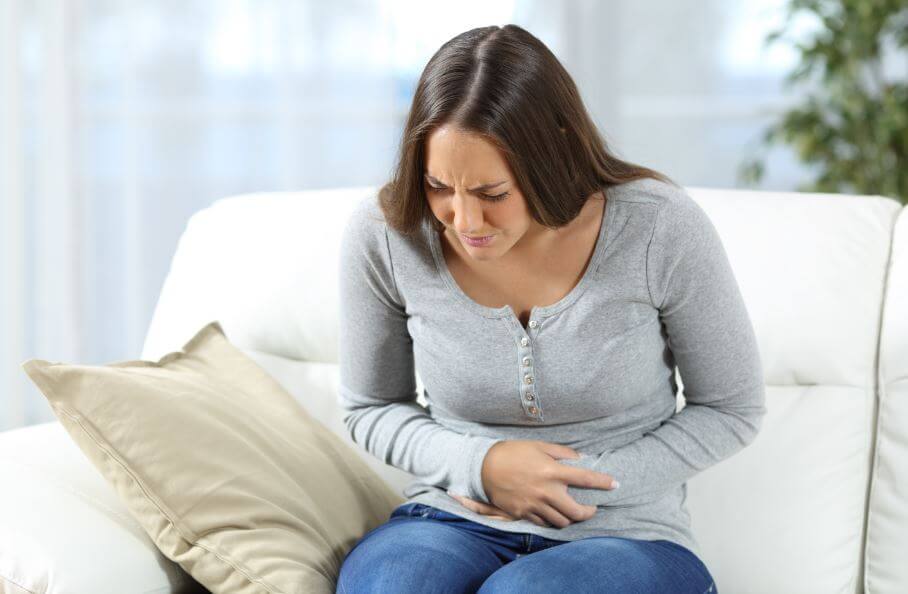Is it Bad to Consume a Lot of Caffeine?

Caffeine is a compound that’s found in the leaves of different varieties of plants. This makes it a substance of plant origins. Caffeine has the function of protecting plants from the attack of insects. Therefore, it acts as a pesticide. But, what happens to the body if you consume too much caffeine?
Caffeine may be called differently depending on the plant it comes from. For example, the type of caffeine that comes from the guarana plant.
We know that caffeine is one of the most popular substances in the world. In both Spain and the United States, more than 90 percent of the adult population drink coffee regularly. Read along to find out which vegetables contain caffeine.
How do we consume caffeine?
Many people think that caffeine can only be found in coffee, however, we know that that is not true. In addition to being found in other plants, caffeine can also be found in different elements of non-food use. This is very important to know because you may be abusing caffeine without being aware of it.
- Coffee: as we all know, it’s the main source of caffeine, but not the only one.
- Tea and guarana: they are two plants that are rich in caffeine. They are mainly consumed in the form of infusions.
- Cocoa: cocoa, as well as other sweet substances such as cake or ice cream also contain caffeine in low concentrations.
- Analgesics and medicines: caffeine is included in these products because it has been linked to relieving headaches.
- Many cosmetics
Regarding caffeine consumption, the recommended daily intake should be 400 milligrams. This is an amount that has been found to cause no negative side effects in most people. Keep in mind that the measurement may vary depending on physical conditions and tolerance.
The recommended amount for pregnant women is 200 milligrams, since too much caffeine may pose a risk to the fetus.

Risks of consuming too much caffeine
Abstinence syndrome
If the body becomes used to receiving caffeine daily, it becomes accustomed to it and becomes more tolerant. This brings (as a consequence) an increase in the amount of coffee consumed each day to gradually make up for the tolerance. This issue does not arise if you consume less than 400 milligrams of caffeine a day, it arises if you have caffeine in excess.
The abuse of caffeine can induce symptoms such as tiredness, drowsiness, anxiety, and headaches. In addition, it can hinder sleep, cause a lack of concentration and excessive nervousness.
Hallucinations
Consuming large amounts of caffeine on a daily basis can cause hallucinations. These do not usually occur in an extreme manner, however, optical and auditory effects have been described.
Dehydration
Consuming too much caffeine can cause dehydration since it has diuretic properties. You may have noticed that coffee, tea and other drinks that contain caffeine make you want to urinate.
Epileptic seizures
Those who suffer from epileptic seizures shouldn’t consume caffeine since it can cause a lack of sleep. A lack of sleep in people who suffer from epilepsy can cause an increase in symptoms.
Gastritis
Having too much caffeine can also cause abdominal pain since the substance stimulates gastric segregation. People who suffer from stomach ulcers should not ingest caffeine since it could aggravate symptoms.

In conclusion, consuming the recommended amount of caffeine produces no side effects. In fact, caffeine is used by the vast majority of people around the world. However, caffeine in excess can cause several health issues such as all of those mentioned above. Therefore, do not exceed 400 milligrams a day.
Caffeine is a compound that’s found in the leaves of different varieties of plants. This makes it a substance of plant origins. Caffeine has the function of protecting plants from the attack of insects. Therefore, it acts as a pesticide. But, what happens to the body if you consume too much caffeine?
Caffeine may be called differently depending on the plant it comes from. For example, the type of caffeine that comes from the guarana plant.
We know that caffeine is one of the most popular substances in the world. In both Spain and the United States, more than 90 percent of the adult population drink coffee regularly. Read along to find out which vegetables contain caffeine.
How do we consume caffeine?
Many people think that caffeine can only be found in coffee, however, we know that that is not true. In addition to being found in other plants, caffeine can also be found in different elements of non-food use. This is very important to know because you may be abusing caffeine without being aware of it.
- Coffee: as we all know, it’s the main source of caffeine, but not the only one.
- Tea and guarana: they are two plants that are rich in caffeine. They are mainly consumed in the form of infusions.
- Cocoa: cocoa, as well as other sweet substances such as cake or ice cream also contain caffeine in low concentrations.
- Analgesics and medicines: caffeine is included in these products because it has been linked to relieving headaches.
- Many cosmetics
Regarding caffeine consumption, the recommended daily intake should be 400 milligrams. This is an amount that has been found to cause no negative side effects in most people. Keep in mind that the measurement may vary depending on physical conditions and tolerance.
The recommended amount for pregnant women is 200 milligrams, since too much caffeine may pose a risk to the fetus.

Risks of consuming too much caffeine
Abstinence syndrome
If the body becomes used to receiving caffeine daily, it becomes accustomed to it and becomes more tolerant. This brings (as a consequence) an increase in the amount of coffee consumed each day to gradually make up for the tolerance. This issue does not arise if you consume less than 400 milligrams of caffeine a day, it arises if you have caffeine in excess.
The abuse of caffeine can induce symptoms such as tiredness, drowsiness, anxiety, and headaches. In addition, it can hinder sleep, cause a lack of concentration and excessive nervousness.
Hallucinations
Consuming large amounts of caffeine on a daily basis can cause hallucinations. These do not usually occur in an extreme manner, however, optical and auditory effects have been described.
Dehydration
Consuming too much caffeine can cause dehydration since it has diuretic properties. You may have noticed that coffee, tea and other drinks that contain caffeine make you want to urinate.
Epileptic seizures
Those who suffer from epileptic seizures shouldn’t consume caffeine since it can cause a lack of sleep. A lack of sleep in people who suffer from epilepsy can cause an increase in symptoms.
Gastritis
Having too much caffeine can also cause abdominal pain since the substance stimulates gastric segregation. People who suffer from stomach ulcers should not ingest caffeine since it could aggravate symptoms.

In conclusion, consuming the recommended amount of caffeine produces no side effects. In fact, caffeine is used by the vast majority of people around the world. However, caffeine in excess can cause several health issues such as all of those mentioned above. Therefore, do not exceed 400 milligrams a day.
All cited sources were thoroughly reviewed by our team to ensure their quality, reliability, currency, and validity. The bibliography of this article was considered reliable and of academic or scientific accuracy.
- Valenzuela B., A. (2010). El Café Y Sus Efectos En La Salud Cardiovascular Y En La Salud Materna. Revista Chilena de Nutrición, 37(3), 514–523. https://doi.org/10.4067/S0717-75182010000400013
- Rojo-Martínez, G., Morcillo, S., Almaraz, M. C., & Soriguer, F. (2005). Consumo de café y diabetes mellitus. Endocrinologia y Nutricion. Ediciones Doyma, S.L. https://doi.org/10.1016/S1575-0922(05)71064-0
- Gutiérrez Maydata, A. (2002). Café, Antioxidantes y Protección a la Salud. MEDISAN, 6(4), 72–81. https://doi.org/10.1523/JNEUROSCI.4498-15.2016
This text is provided for informational purposes only and does not replace consultation with a professional. If in doubt, consult your specialist.








